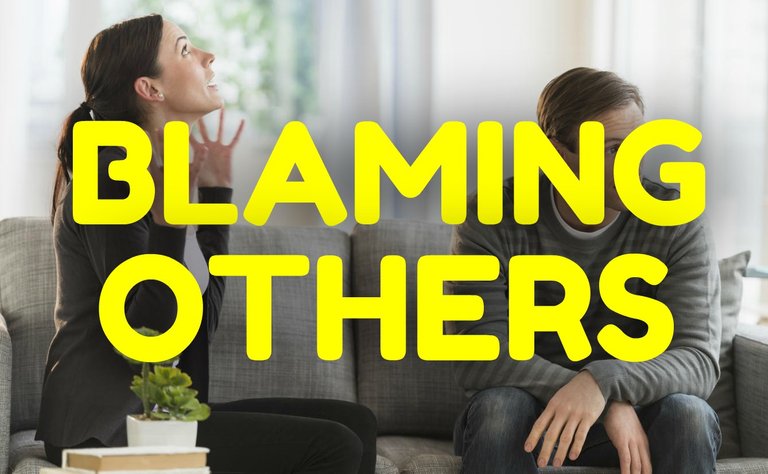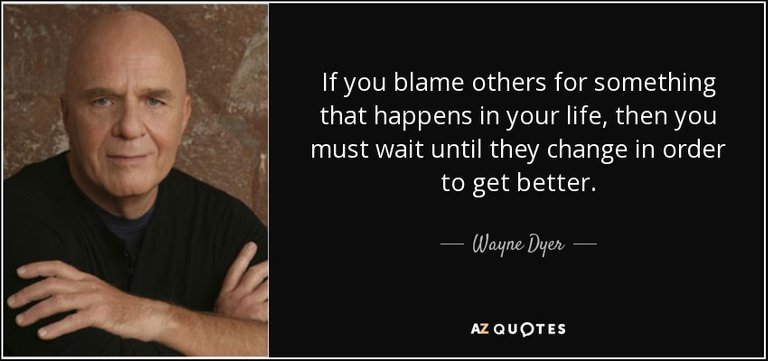
Impetuously Blaming Others
A motorist goes down the incorrect way in a parking zone and receives the middle finger from another driver. A student fails a test and afterwards becomes belligerent toward the teacher and makes nasty comments to alternative students concerning the teacher.
A teacher systematically gets poor student evaluations and blames the students for being incompetent and too stupid to judge him. A person beats up his wife and blames the victim for not “understanding” him. A girl cheats on her husband and blames him for working too much.
We Have All Played The Blame Game
Clearly, there are cases within which an individual is blamable for a wrongdoing and acknowledging blame doesn't involve taking part in the blame game. In such cases, there's a constructive approach of settling a dispute as in assigning legal responsibility in a civil matter.
Such assignment of blame is conducted consistent with objective standards and doesn't involve disrespectful treatment of others as will taking part in the blame game. Outside a legal context, the assignment of blame could also be done for functions of bettering a scenario.
Thus, once two significant others have an argument or dispute, admission of blame, generally on the part of each partners, will help toward creating constructive amends for the long run. Indeed, in counselings, the disposition to just accept responsibility for one’s life is a crucial necessity toward creating constructive modification.
Accepting Your Wrongdoings
Do you search for somebody else to blame once things seem to have gone wrong? Do you tend to look down on the person you have marked out as the culprit? Do you treat (speak or act toward) this person/s in a very disrespectful manner and suppose yourself justified? How often? Are you a blame gamer? If thus, then what must you do otherwise for happiness sake?
Hand over you blame claim that somebody continuously has to be blamed and made to pay. Daily life isn’t a court of law, and you aren’t the judge and jury. Settle for yourself and others unconditionally. This doesn’t mean you can’t negatively rate your own actions or those of others; however, it does mean that you just shouldn’t reprimand yourself or others. Individuals aren’t “assholes” or “shits” even after they do lousy things.
Recast responsibility as the way to learn from your mistakes as well as those of others. Settle for your unreliableness as a route toward improvement. Try and make things better, but rest content that you live in an imperfect world. Embrace this imperfect universe and therefore the fallible beings in it, yourself and others —and stop blaming individuals for it.
